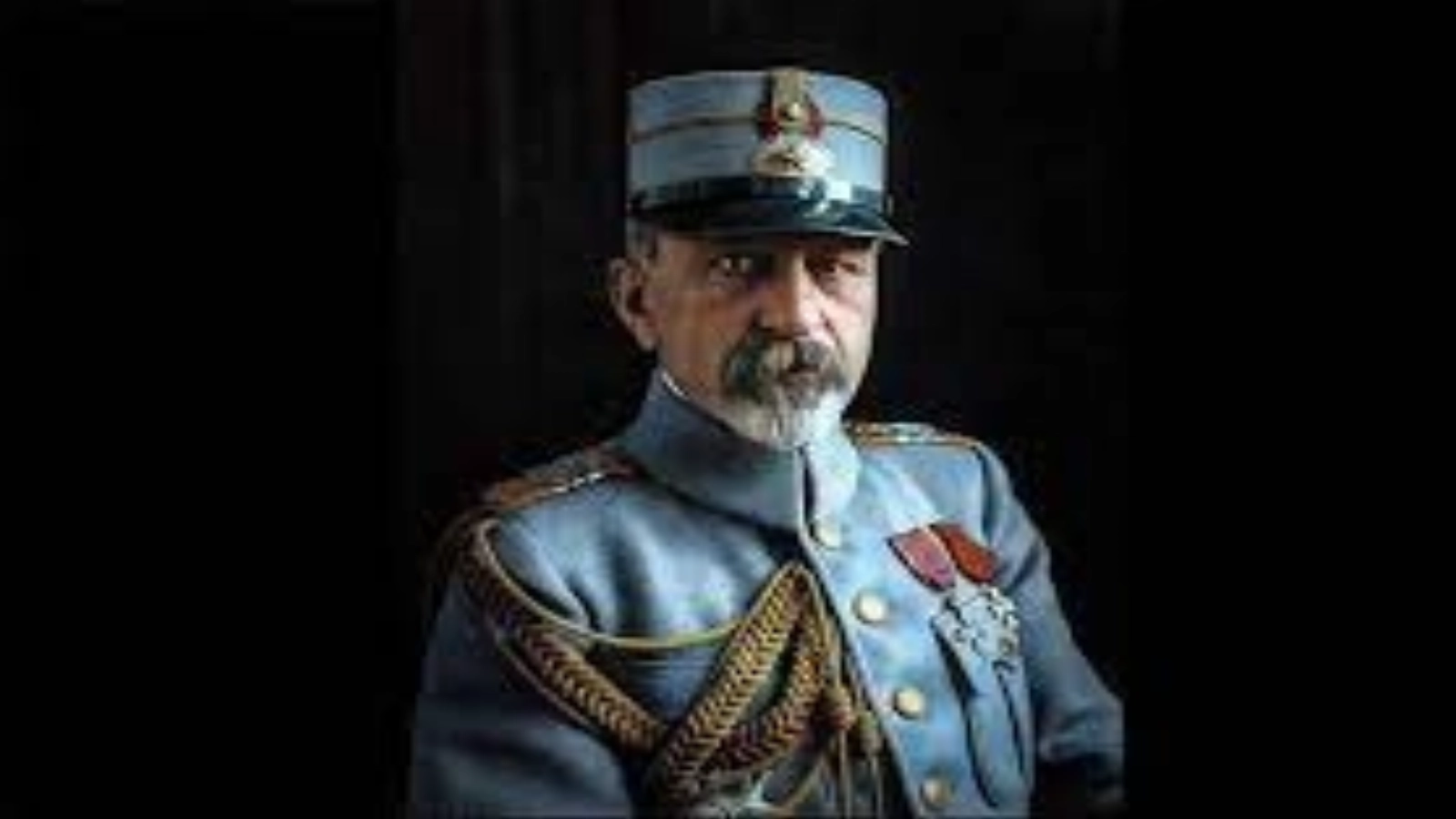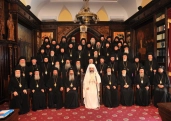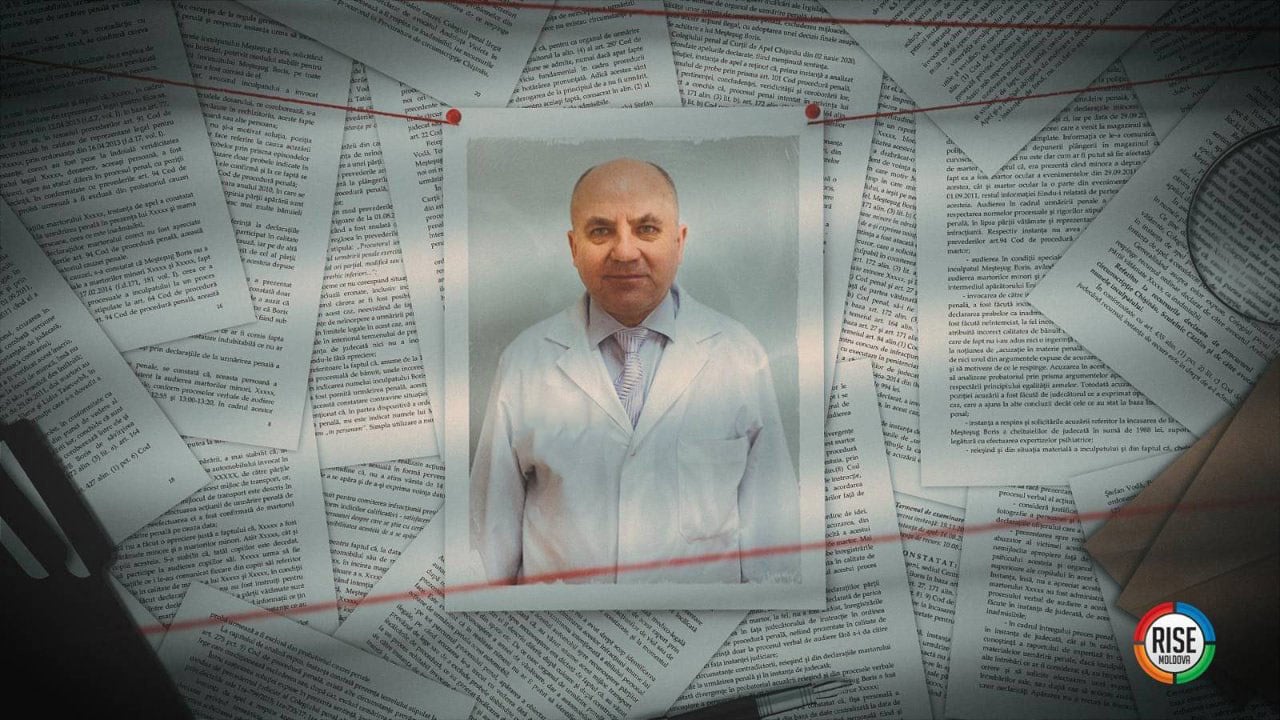About 50 kilometers from Vaslui, on the outskirts of Schinetea village in Dumesti commune, there is the manor where Marshal Constantin Prezan spent the last 23 years of his life.
Full of memories and bearing the imprint of one of the most important personalities in the history of our country, the mansion is on the list of historical monuments. It was a period of state ownership, after which it was claimed by Olga Macarie, granddaughter of the marshal, who dedicated her life to honoring the memory of her illustrious grandfather.
Constantin Prezan bought the estate in Schinetea in 1897, according to the documents of the time. In 1943, at his manor in Schinetea, the marshal passed to the eternal, being buried, together with his wife, Elena Olga (former Eliad), a few hundred meters from the courtyard of the property that he cared for and cherished so much.
Many years after the purchase, through a sale-purchase deed authenticated by the Romanian County Court on July 6, 1934, Marshal Prezan passed into the property of Olga Dimitriu (former Olga Antoaneta Eliad, the adopted daughter of his wife, according to http://enciclopediaromaniei.ro/wiki/Constantin_Prezan), a part of the estate, in an area of 178 hectares. Also, in the same year, on September 9, Marshal Prezan passed into the possession of his son-in-law, Dr. Constantin Dimitriu, from Bucharest, by deed of sale-purchase, two 'bodies' from Schinetea estate.
The manor consists of two bodies. The old wing, located to the north, is from the nineteenth century, bought by the marshal once with the estate. It was added a new wing, to the south, when the entire manor was restored. Thus, the two building bodies have different architectures. When erecting the new wing, stonemasons from Tansa were used. In the summer of 1944, the works on the pillars of the façade were completed, but they were permanently stopped due to the advance of the Soviet armies. The architecture of the manor shows that the craftsmen are the descendants of the Italians settled in Tansa at the end of the nineteenth century, where they built the church and the bridge in the stone.
"The objective was nationalized by the communist authorities after taking power, and a dormitory-hospital for adults with severe mental disabilities was installed in the manor. After the Revolution of December 1989, Dr. Olga Macarie, granddaughter of Marshal Prezan, claimed the manor and the surrounding land. On January 6, 1999, the Vaslui Court recognized Olga Macarie the property right over the building. At that time, 89 adults with severe mental disabilities were hospitalized in the building. As a result of the magistrates' decision, in 2001, the patients of the hospital-house from Schinetea were moved to a building in the Vutcani commune," said Anca Iordachi, museographer at the Stefan cel Mare County Museum of Vaslui.
The building is now owned by Olga Macarie and houses a small museum arranged by the marshal's granddaughter with the support of the specialists from the Vaslui County Museum, from the National Military Museum and from the National Archives. Every year, in Schinetea took place thematic exhibitions, conferences and scientific communications that gathered countrywide historical representatives. The studies collected from the scientific communications and symposiums organized by the Stefan cel Mare County Museum of Vaslui were found in the first monograph Constantin Prezan, made in 2005 by Viorica Zgutta, then a museographer within the institution, who dedicated a large part of her professional activity to the marshal's personality.
Over time, the marshal's niece collected various objects which she considered could be important exhibits in the Schinetea museum: things that belonged to Constantin Prezan and his wife, Olga Prezan, folk art objects, a family piano, pieces of furniture, paintings, diplomas, photographs, diaries or letters from the front of former soldiers, maps, flags or military books, objects that bear fascinating stories or talk about heroism, dignity and patriotism, virtues that could seem obsolete nowadays.
Settled in Bucharest, Olga Macarie chooses every year to stay in the summer months in the places where she grew up. She remembers the moments spent around her grandfather as if she had lived them yesterday, she speaks with love about every thing sheltered by the two buildings, about each corner and about the way the activities were carried out at the mansion when the marshal lived at Schinetea.
She prefers, like Marshal Constantin Prezan, the peace and quiet of Schinetea and, although she managed to perform some repair works, she thinks she still has things to do so that the place where her grandfather lived his last years and where he takes his eternal sleep to be more known, better popularized. She admits that the inheritance she received was not necessarily a blessing for her, because she was confronted over time by hostile authorities, by bureaucracy, by the existence of crooked laws, but she believes that, as a sign of gratitude for what Constantin Prezan meant for her personally and for the Romanian people, she has a fight to fight.
"My duty is to keep this place alive and I am very happy when children come here. That's what interested me the most, to tell the kids who Prezan was. I have met soldiers who did not know who Constantin Prezan used to be, but it is not their fault. He was ousted from history, it was a conspiracy of silence. I said that (it happened) because he discovered, schooled and defended (marshal Ion) Antonescu, that would be the reason why he disappeared from history. Historian Petre Otu, who wrote a book about Prezan, says something else and I think he's right. Prezan was the Romanian officer who first fought against Bolshevism, he annihilated the coup d'état that sought to arrest the king and government and immediately caught them and put them in jail. Petre Otu says that this hangs heavy, not only the fact that he supported Ion Antonescu," Olga Macarie tells AGERPRES.
The marshal's granddaughter keeps in her memory her grandfather as a just, fair and intransigent man. He wasn't the grandfather to tie her up, to make her happy, or to overwhelm her with affection every day. She is convinced that the marshal had an essential role in her formation as a human being and believes that Prezan, with a visionary mindset, prepared her especially for all the unpleasant things she received later from life, although she was only a child when her grandfather died.
Olga Macarie opens the door to the museum to all those who want to visit it. Those who cross the threshold of the old manor write their name in a book of feasts and receive printed on paper information about the activity of Marshal Constantin Prezan, one of the main leaders of the Romanian army during the First World War, and about the merits he had in his military career.
The manor still needs to be repaired and, as the local authorities claim, joint efforts can be made to make such an objective more valuable.
"For us, this objective has a special significance, given the outstanding personality of Constantin Prezan. We do our best to keep alive the marshal's memory, we permanently organize events dedicated to him. Students from the commune and not only hold history classes inside the museum. We could get more involved if we managed the manor," says the mayor of Dumesti commune, Ciprian Ionita Barnea.
"Schinetea must become a Mecca for all the officers of the Romanian Army, who will come once in their careers and light a candle at the tomb of the one who with tact, professionalism, modesty and dignity coordinated the military actions of which we are so proud today," is the message of Ramona Mocanu, manager of the Stefan cel Mare County Museum of Vaslui.AGERPRES
































Comentează